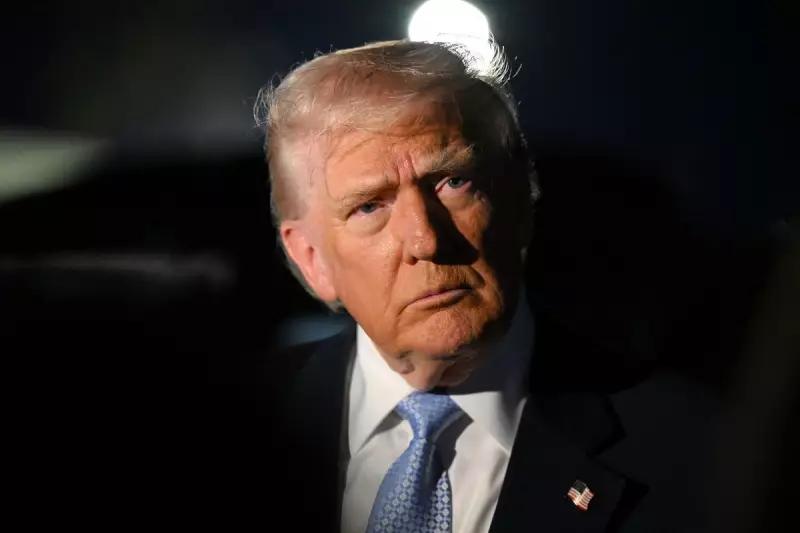
Trump Confronts Political Crisis as Approval Ratings Plummet
Donald Trump's presidency faces its most significant challenge yet as new polling data reveals his approval rating has dropped to its lowest level since he returned to the White House. According to a Reuters-Ipsos poll conducted this week, the president's approval has fallen to just 38 percent, marking a concerning downturn for the Republican leader.
Bannon's Blunt Advice: 'Bang Some Heads'
In response to the deteriorating numbers, Trump ally Steve Bannon has delivered characteristically direct advice, urging the president to "bang some heads" and implement a clear strategy to reverse the party's fortunes. The former chief strategist told Axios: "Let's run the table with a simple plan, aggressively executed. The President may have to bang some heads. His entire plan has an objective of GROWTH, JOBS, HIGHER WAGES — now execute."
The political turbulence comes just weeks after a blue wave swept elections across the United States, with Democrats securing key victories in Virginia, New Jersey, and New York City. Trump himself acknowledged the poor results, conceding: "I don't think it was good for Republicans, I'm not sure it was good for anybody."
Multiple Polls Reveal Deepening Concerns
The Reuters-Ipsos survey uncovered several troubling trends for the administration:
- Trump's approval among Republicans has dropped to 82 percent, down from 87 percent earlier in the month
- Only 20 percent of Americans approve of Trump's handling of the Epstein case
- 70 percent believe the federal government is hiding information about Epstein's clients
A separate Fox News survey published Wednesday showed similar results, with 41 percent approving of Trump's job performance while 58 percent disapproved. The economic outlook appears particularly bleak, with 76 percent of voters viewing the economy negatively and 46 percent saying they've been personally "hurt" by the Trump administration's economic policies.
The Marquette Law School poll released Thursday provided further evidence of the administration's struggles, showing Trump's approval at 43 percent overall but dropping significantly on specific issues. Only 29 percent approved of his handling of Epstein files information, while just 28 percent approved of his approach to inflation and cost of living.
Economic Blame Game and Political Consequences
Despite Trump repeatedly blaming former President Joe Biden for rising prices, 62 percent of Americans hold Trump responsible for current economic conditions, compared to only 32 percent who blame Biden. The president recently stated: "The Biden Administration started the affordability crisis — and my Administration is ending it," but polling suggests this message isn't resonating with the public.
As the 2026 midterm elections approach, the political landscape appears increasingly challenging for Republicans. The Reuters-Ipsos poll found that 55 percent of registered voters would support a Democratic candidate for Congress if elections were held today, compared to only 41 percent who would back a Republican.
Mike Ongstad, an independent strategist, told Reuters: "What we're seeing is probably the biggest test of his presidency in terms of his grip on the Republican Party."
Meanwhile, a redistricting battle is intensifying across the country. California voters approved a redrawn congressional map that would give Democrats five additional seats, prompting the Justice Department to sue the state's governor and secretary of state. California Democratic Governor Gavin Newsom's press office responded defiantly: "These losers lost at the ballot box and soon they will also lose in court."
In Texas, a panel of federal judges blocked the state's new congressional map that could have given Republicans five additional seats. The state has appealed to the Supreme Court, with Texas GOP Governor Greg Abbott declaring: "This ruling is clearly erroneous and undermines the authority the U.S. Constitution assigns to the Texas Legislature."
Despite the challenging environment, Trump officials told Axios they remain optimistic the economy will turn around in the first quarter of 2026. The administration continues to grapple with multiple crises as it seeks to regain political momentum ahead of the crucial midterm elections.





